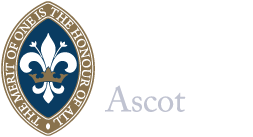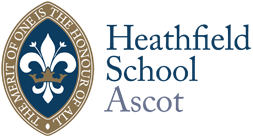Art & Design: Fine Art, Textiles, 3D Design, Moving Image, and Illustration
Examination Board: EDEXCEL
How is the course assessed?
60% Coursework: Personal Investigation and Personal Study
- The Personal Investigation is a portfolio of practical work produced throughout LVI and the Michaelmas Term of the UVI. This is worth 48%.
- The Personal Study is a critical and analytical written piece of approximately 3000 words. It comprises 12% of the total qualification.
- Both the Personal Investigation and Personal Study themes are internally set by the School, and externally moderated by the examination board Edexcel.
40% Examination: Externally Set Assignment
- Incorporates two major elements: preparatory studies and the 15-hour period of sustained focus.
- The preparatory studies are produced throughout the Lent Term of UVI concluding with the 15-hour examination in the Summer Term of UVI.
- The Externally Set Assignment is externally set, assessed by the School, and externally moderated by the examination board Edexcel.
Drawing & Recording:
Drawing is an essential skill for studying any subject within Art and Design. It forms a core element of the practice of artists and designers. Drawing in the context of this qualification can include drawing, film, and photography. All examination boards have put a greater emphasis on Drawing and Recording.
Critical and Contextual Knowledge and Understanding, including Annotations:
An important aspect of student progression is the application of critical and contextual knowledge, understanding, and an ability to express and justify ideas. Annotations are written notes that use specialist terminology and vocabulary relevant to the development of work as it is produced. All examination boards have put much greater emphasis on literacy skills.
Course Structure:
Throughout the first two terms in LVI, students follow a theme to produce a portfolio of work based on a foundation of workshops in drawing and painting, textiles and fabric manipulation, printmaking, and sculpture. In the Summer Term of LVI and the Michaelmas Term of UVI, students will specialise in their area of interest to develop another project independently. This are of specialism might be any of those listed above, and you will work with your tutors, who will help you to identify your strengths. This project will also be the inspiration for the Personal Study, a written piece of approximately 3000 words. During this time, students will have a mock examination to prepare them for the external examination. In the Lent Term of UVI, students will be issued the Externally Set Assignment. This follows a similar format but will culminate in a 15 hour examination in the Summer Term of UVI.
Expectations and Commitment:
Independent study is an essential requirement. A high level of motivation is required to ensure that opportunities such as gallery visits, research opportunities, residential trips, and cultural events are pursued in order to evidence the maturity and conceptual thinking skills required to obtain a top grade.
Course requirements:
We require a minimum of Level 6 in Art and Design at GCSE. A Level work produced is expected to be presented to the same standard as a foundation course or higher.
Mathematical skills required?
Perspective, measurements, following patterns and an excellent understanding of 2D and 3D form is required.
Why study Art & Design?
If you enjoy working hard, are creative, and have a genuine sense of enquiry, you would be well suited to this course. For those wishing to pursue a creative pathway e.g. jewellery design, furniture design, costume design, set design, fashion styling, film making, architecture, graphic design or illustration, an A Level in Art and Design is a great place to start. We enjoy the support of a Fashion Designer in Residence, who is employed to organise the annual fashion show, and add additional skills to an already vibrant and exciting department. The biennial fashion show is an opportunity for all students to get involved with stage management, dressing, producing look books, or creating fashion films. Guest judges have included significant figures from the fashion industry including Models 1, fashion recruitment agencies, London College of Fashion, famous bloggers, fashion magazines, and fashion houses. The previous fashion show was co-directed by Stephen Lisseman, the former Creative Director for Gucci and Karl Lagerfeld.
Partnerships:
Falmouth School of Art at Falmouth University
In recognition of the exceptional standard of Fine Art produced at Heathfield, we are the first school in the UK to have entered into a Creative Partnership with this outstanding higher education provider. The ambitious and personalised delivery found within the art curriculum at Heathfield is closely aligned to the pedagogical practice employed on the degree programmes for both the BA Drawing and BA Fine Art courses at Falmouth. Harnessing the very best of innovative education at both institutions, the Art Department works in collaboration with Senior Tutors on the BA Fine Art and BA Drawing courses to enhance and extend current provision for Heathfield pupils. Opportunities include bespoke workshops, on/off-site visits, portfolio reviews, and degree level projects for pupils studying GCSE and A Level Art & Design and developing a first-class scholars programme.
London College of Fashion
We have a strong relationship with the London College of Fashion. All Heathfield pupils applying for a degree course are entitled to a guaranteed interview.
Parsons Paris
In 2022, Heathfield entered into an unprecedented Collaboration Agreement with Parsons Paris, the only one of its kind in existence. As a small school, to be acknowledged nationally as a leading provider for secondary art education in recognition of the outstanding fashion and textiles produced by our students, is a true reflection on the excellent work by both our students and staff. In 2021, Parsons was ranked as the number one Art College in the USA and one of the top three in the world.
Alumni & Progression:
Many have continued their studies at prestigious colleges such as Central St Martins, London College of Fashion, Falmouth, Manchester, UCL, and Parsons in New York and Paris.



